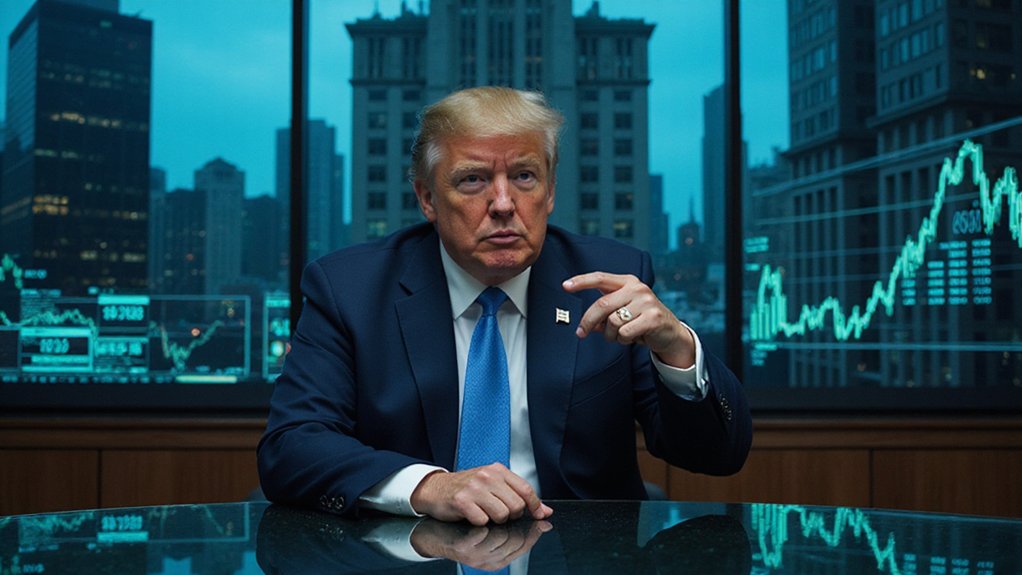Why have traditional banking institutions—those stalwart pillars of economic stability—suddenly found themselves scrambling to remain relevant in a rapidly evolving financial landscape?
According to Eric Trump, the answer lies in cryptocurrency’s meteoric rise and the existential threat it poses to conventional banking paradigms.
Trump’s assessment paints a stark picture: established financial institutions, encumbered by legacy systems and regulatory inertia, risk obsolescence in the face of blockchain’s relentless innovation trajectory.
The crux of Trump’s argument rests on crypto’s fundamental value proposition: an egalitarian financial framework unburdened by governmental oversight.
Crypto’s revolutionary promise: financial democracy liberated from government control.
Where traditional banks operate within hierarchical structures that inherently favor affluent clientele (a system many would argue is fundamentally broken), cryptocurrency offers universal accessibility—anyone with a mobile device potentially commands the same financial agency as institutional behemoths.
Blockchain’s technical superiority further compounds this existential threat.
Transactions that might require days and substantial fees through antiquated systems like SWIFT can be executed in seconds at minimal cost via distributed ledger technologies.
This efficiency differential isn’t merely incremental; it represents a paradigmatic leap that renders many banking services potentially obsolete.
The implications extend beyond mere competition.
Trump suggests a complete reconfiguration of global financial power structures may be imminent.
Decentralized systems, by their nature, resist the centralized control mechanisms that have defined monetary policy for generations.
This rebalancing potentially democratizes economic sovereignty in unprecedented ways.
For traditional banks, the path forward appears increasingly narrow.
Those failing to integrate blockchain technologies face what Trump characterizes as an extinction-level event—a particularly sobering prospect given the regulatory advantages banks have historically enjoyed.¹
The alternative, as Trump bluntly frames it, is watching helplessly as cryptocurrency leaves them “in the dust” of financial history.
While traditional banks struggle with international transfers costing over $45, cryptocurrency transactions typically require transaction fees under $10 while providing greater transparency and flexibility.
—
¹ A regulatory framework that, ironically, was designed to guarantee their stability.









